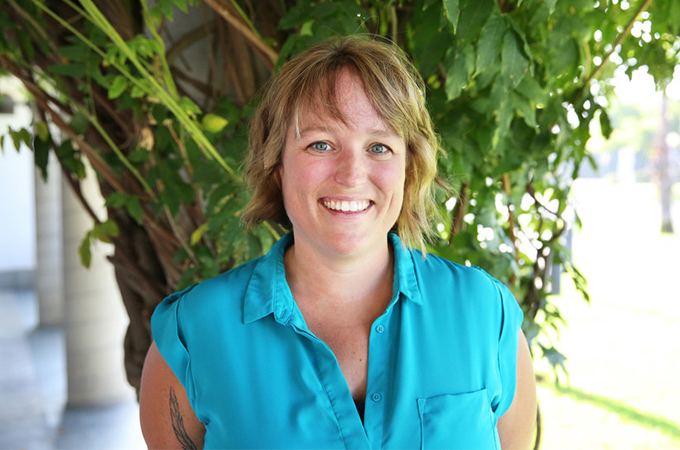School of Education Counseling Professor Tamara Tribitt chatted with Katie Olson of U of R’s Bulldog Blog about why she came to the University of Redlands, the instructional theory she uses to train future counselors, and the importance of advocating for students of all ages.
Bulldog Blog: This is your first year at the University of Redlands. What motivated you to come here?
Tamara Tribitt: There were quite a few things that attracted me to Redlands. Not only is it a beautiful campus, but during the interview process, I sensed that the School of Education promoted the same ideas that I care about. I could tell that there was a lot of room for me to grow and a lot of room for my voice to be heard, too. It was important to me during my job search that my place of employment focuses on social justice and advocacy. It’s not just something that is written down in the mission statement. When I was looking at the work of the professors I would be working with, a lot of their research was related to social justice issues.
BB: What are some of the courses you teach?
TT: Last semester, I taught a basic counseling skills class. The course focuses on the communication and counseling skills needed to be a counselor. I co-taught another course with Dr. Hideko Sera that focuses on sociopolitical issues and multicultural competency in counselors. I also taught a foundational class for school counseling.
BB: Do you use any unique methods when you teach?
TT: I definitely practice from a particular instructional theory, called sentipensante developed by Laura Rendón. When that word is broken apart in Spanish, sentir means to feel and pensar means to think. Putting those together in the classroom consists of providing the information that students need to know as students and future counselors, and using different activities to engage the emotional side of their being, too. The intention is to engage the factual part of our brains with our relational side to get a deeper sense of the material.
BB: What sort of activities?
TT: We do some journaling in the classroom, practice activities that promote mindfulness, and do some art projects. I try implementing activities from different aspects of students’ lives so that whatever we're learning about becomes more of a personal thing.
BB: How did you become interested in the intersection between counseling and social justice?
TT: As a school counselor, advocacy was a major part of my job. School counselors witness how institutional oppression occurs and affects students. We have a responsibility to advocate for and with students who aren’t getting equal access to education. School counselors work with the students and their families to help them feel empowered to share their voices and make sure their voices are being heard.
BB: What are some specific issues that students face today?
TT: Equal access to quality education is a nationwide problem. Culturally responsive education is really important. Sometimes, traditional education can be based on the dominant culture of a country, which means that there are a lot of pieces of history that are being ignored. Advocating for culturally responsive education is another way of advocating for students.






